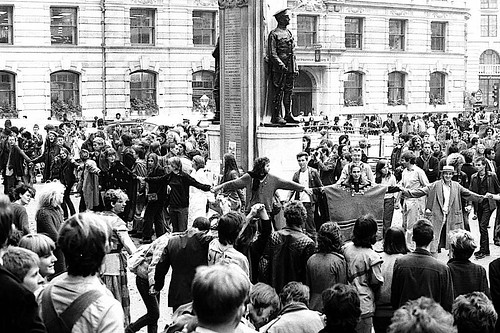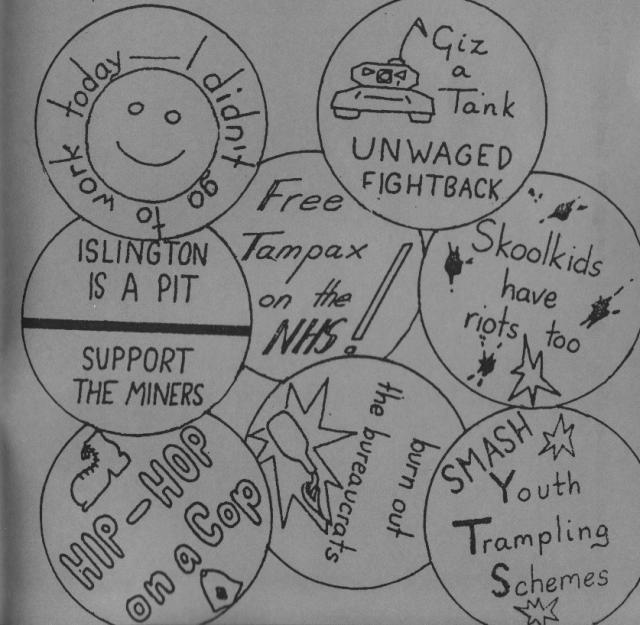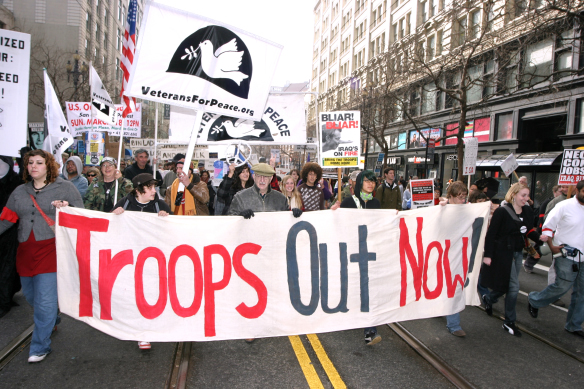 Many RESPECT activists & elected representatives are signatories to this petition - why not add your name?
Many RESPECT activists & elected representatives are signatories to this petition - why not add your name?
HiI am an activist and a public sector worker from Merseyside. I am running a petition on the 10 Downing Street website in support of a living wage, which has 380 signatures so far. Please can you take a minute to read my e-mail and if you wish to sign, click on the link below and fill in your personal details.
We the undersigned petition the Prime Minister to take steps to replace the national minimum wage with a living wage based on the level of pay and conditions that enables a full-time worker to make ends meet for themselves and their family. Official regional living wage figures should be announced such as the one given by Mayor Livingstone for London (and increased by the GLA in April 2007 to £7.20 an hour).
I have also now started a blog to run alongside it, which will be regularly updated and expanded over the coming months, with useful information including what the living wage campaign is about, who supports it, and details of recents news stories and events :
The information below is copied from my blogsite :
Why a living wage?
The national minimum wage does not allow many workers to escape poverty. The Low Pay Commission do not take into account peoples actual needs in setting the NMW. In the UK 4¼ million adults aged 22 to retirement were paid less than £6.50 per hour in 2006. Two thirds of these were women and a half were part-time workers. A living wage could ensure that no workers receive poverty pay or have to rely on benefits, and could allow contract workers to lay claim to the same pay and conditions as staff directly employed by government and local councils.
Some would say that a living wage would actually harm poor people by losing vital jobs. This is exactly the same argument that was trotted out innumerable times against the introduction of the NMW. And what was the effect of the NMW ? According to the government's own evidence last year to the Low Pay Commission, "UK academic research to date has not found any firm evidence that the adult minimum wage has reduced employment rates or raised unemployment; this is consistent with the available international evidence."
Why now?
In the USA since 1994, over 120 city and state governments have passed living wage ordinances following pressure from local campaigners. Living wage campaigns have raised levels of pay and provided benefits like health care for thousands of workers. Studies there have shown that the living wage has had no significant adverse impact on jobs, business or the economy.
Following pressure from campaigners, London mayor Ken Livingstone has given his backing to a living wage in London. A living wage unit has been set up in City Hall, through which figures for the London living wage are calculated and published. Implementation has so far proved a thornier problem, but the publication of the figures has already started to change the pay bargaining landscape. It follows on some notable victories for low paid workers, in particular cleaners in East London Hospitals and cleaners in Canary Wharf and the City of London, thousands of whom have secured a living wage. Last year QMUL became the UK's first first living wage campus :
The college council committed itself to making Queen Mary the first "living wage campus" in the UK. This means no one will be paid less than a living wage (currently set at £6.70 an hour), or receive fewer than 28 days' holiday and 10 days' sick pay. Crucially, the change includes all staff on campus, not just those directly employed by the university. Queen Mary's cleaning staff are going to get a rise.
For Christine Martin, cleaning supervisor at Queen Mary for 12 years, the living wage will make a huge difference. Martin is employed by the university's cleaning contractors, KGB, and receives £5.20 an hour - the £5.05 minimum wage plus a pitiful 15 pence an hour as supervisor. "It is difficult to survive in London on this kind of money. Sometimes you think you might as well not work for what you earn," she says. "I do a second job and have to claim housing benefit just to make ends meet, so the living wage really has given me something to look forward to."
Guardian April 11, 2006
London's problems are not unique. Everywhere you go around the country, there is poverty pay, and there is a need for a living wage. A living wage in every region in the UK would be a huge boost to millions of low paid workers.
Jean Lambert (Green Party MEP) said in support of my petition
British people work some of the longest hours in Europe yet 7 out of 10 people working over 48 hours per week say they would like to work fewer hours. For many however this is impossible as they simply cannnot afford to do so. It is currently possible for someone to work more than 60 hours a week and still be paid less than £11,000 per year. The number of people living below the poverty line in the UK is higher than the EU average and continues to increase. The long hours culture is endangering our health and acting as a detriment to our family life. We can't have a culture that says you can not rest. We need a national living wage immediately to ensure this changes and everyone can make ends meet without working 24 hours a day, 7 days a week.
Labour Party councillor Richard Bertin (Vale of Glamorgan) added these comments
Yes we have now thankfully got the minimum wage, and yes it is helping thousands of low paid workers. But with the economy doing so well there are repercussions one of which is the rising house prices. Unfortunately, the gap between the rich and poor continues to grow and this needs to be addressed now ! - How ? By rightly establishing a national living wage to ensure that we improve the lives of those on low pay and also do our bit to remove poverty from the 4th largest economy on the world - Great Britain. We need a living wage and we need it now!
Thanks for your time
Nick Wall
 Students, pensioners and working people are marching in London to the Bank of England today to make it clear to the government and the bankers that we will not pay for their crisis. Assemble outside the Bank of England at 4pm today.
Students, pensioners and working people are marching in London to the Bank of England today to make it clear to the government and the bankers that we will not pay for their crisis. Assemble outside the Bank of England at 4pm today.

.jpg)





























